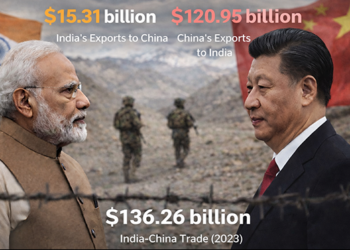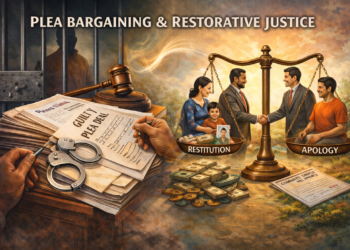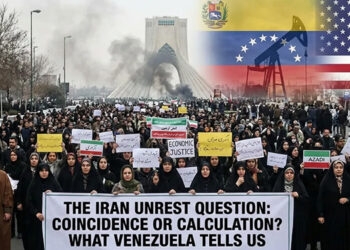The order to convene a special session of Punjab Vidhan Sabha to take up the “Confidence Motion” has been withdrawn by the Governor exercising his discretionary power. The Council of Ministers lost no time in sending the advice again to the Governor to call a regular session of the Assembly on 27 September to discuss issues like paddy stubble burning and electricity etc. Constitutional experts and political observers examine the technicalities and sanctity behind these decisions. The whole controversy revolves around one question whether summoning the House to discuss “Confidence Motion” falls within the discretionary powers of the Governor or not. In the existing constitutional scheme, Governor’s discretionary powers are conclusive, though subject to limited judicial review.
As per Article 174 of the Constitution, it is the prerogative of the Governor to summon the House. In Nabam Rebia v. Dy. Speaker, Arunachal Pradesh Legislative Assembly (2016), the SC held that if Chief Minister enjoys the confidence of the House, Governor cannot exercise his discretion under Article 174 without aid and advice of the Council of Ministers. As long as the Council of Ministers enjoys the confidence of the House, its advice is binding on the Governor. However, if the Governor doubts the majority support of the Chief Minister, he can always exercise his discretionary powers and call for a floor test. By implication, it means that the advice of a minority Government does not bind the Governor. The instant case of Punjab is unique where a majority government wanted to bring a “Confidence Motion” of its own volition. This conduct of the Punjab Government amounts to an indirect admission that they are in the minority and intend to prove majority in the House. Here arises a substantial constitutional question: Is the Governor bound by the advice of such a self-proclaimed minority Government? This issue becomes further complex given Rule 58 of the Conduct of Business of Punjab Vidhan Sabha, which provides for tabling only “no-confidence motion” and not “Confidence Motion”. It is reported that the Governor exercised his discretion to withdraw the order of summoning the Assembly when his attention was drawn to these technicalities by the opposition parties and the learned Additional Solicitor General of India in his advice. This brings into focus the discretionary powers of a Governor.
The Governor of state functions in a dual capacity. He is the Head of the State and the representative of the Centre in the State, acting as a channel of communication and control between the Centre and the State to ensure that the state functions according to the Constitution. Vesting the Governors with such broad discretionary powers was justified in the Constituent Assembly on the ground that the Governor has to examine the decisions of the State Government, keeping in view large public and national interest. The Governor’s Committee has clarified the position further: “….even though in normal conditions, the exercise of the Governor’s power should be on the advice of the Council of Ministers, an occasion may arise when the Governor may find that, to be faithful to the Constitution and the law and his oath of office he has to take a particular decision independently.” In Pu Myllai Hychho (2005), the Supreme Court observed that as a standard rule, the Governor should exercise all his powers and functions by or under the Constitution on the aid and advice of the Council of Ministers, save in limited spheres where Governor is required to exercise his role in his discretion.
Articles 163(2) and 163(3), read with the verdict of the SC in MP Special Police Establishment v. State of MP (2004), make it amply clear that whether a function falls within his discretion or not shall be decided by the Governor himself and his decision shall be final. The validity of anything done by the Governor exercising his discretionary power is not to be called into question on the ground that “he ought or ought not to have acted in his discretion”. It is relevant to know that a Governor’s discretionary powers are far superior compared to that of the President of India in relation to the Central Government, especially after the 42 nd Constitutional Amendment (1976). The advice of the Central Government is binding on the President. However, the President may require the Council of Ministers to reconsider the advice it gave, and he is bound to act in accordance with the recommendation after reconsideration. There is no such provision in the case of the Governor.
Public accountability and constitutional morality demand that discretion be exercised with due diligence and sobriety. Discretion entails positive responsibility on the authorities to carry it forward. The political observers would undoubtedly question the manner and background in which Governor Punjab withdrew the order to summon the House. The credit of Punjab Government will also be impeached on their hidden political agenda behind seeking a vote of confidence. It is a reality that debates in Legislative Houses have always been used by experienced politicians to trade political charges against their opponents by camouflaging them under cover of legislative business; the move of Punjab Council of Ministers though, appears to have been ill-advised as it got exposed prematurely. It would have been prudent to get the House convened to discharge some legislative business as has been done now. It is up to the Business Advisory Committee of Vidhan Sabha to finalize the business to be transacted in a session without any interference from the Governor.
Mahatma Gandhi once said that politics without principles would destroy us. Ideally, no House of Legislature should be allowed to become a ground for a political slugfest. Business in Vidhan Sabha is a matter of all seriousness. Let it be discharged with all humility, rationality and balance, required from all stakeholders.







